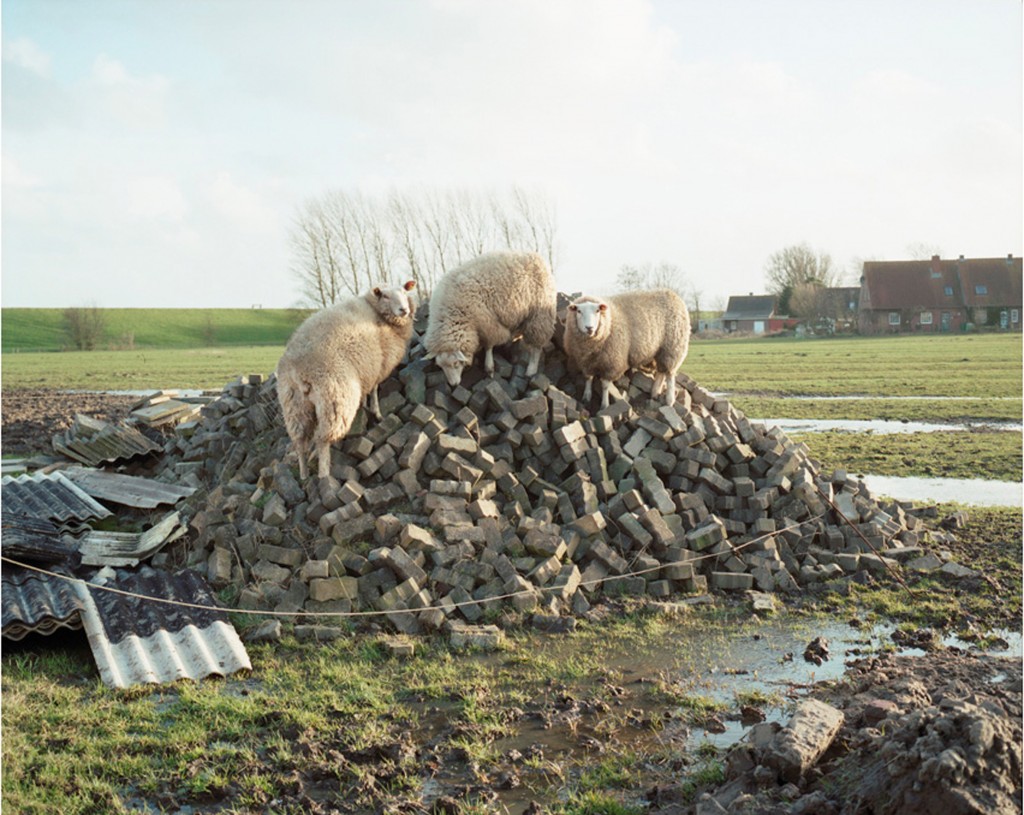People in the 14th century experienced a series of overwhelming climatic, societal, economic and cultural changes. But what were the exact interconnections between these events? A conference next winter aims to focus on this question.
The Crisis of the 14th Century: ‘Teleconnections’ between Environmental and Societal Change?
Organizers: Martin Bauch (Deutsches Historisches Institut in Rom);
Gerrit J. Schenk (Technische Universität Darmstadt)
Location: German Historical Institute in Rome, 24.02.2016 – 26.02.2016
Deadline for CfP: 30.06.2015
Background

The first half of the 14th century, with its relatively rapid transition from the so-called Medieval Climate Anomaly to the so-called Little Ice Age, is the first time in history that a change from one climatic regime to another is assessable not primarily by scientific data only. At the same time, this climactic change can also be detected in comparatively good written records on meteorological and social phenomena of change. The idea of the ‘crisis of the 14th century’ is a well established interpretational pattern for numerous developments and problems of late medieval societies in Europe. However, this interpretation has been criticized as a contemporary projection of the crisis-ridden 20th century. Certainly the narrative of crisis does not apply to all developments after 1300, but if we focus on the natural framework of the time this might help sharpen our knowledge about the processes through which environmental change contributed to socio-economic crisis.
The increasing frequency of extreme natural events and their impact on societies is hard to deny: The first huge onslaught of plague, the Black Death of 1347-51, has always attracted the attention of research but the wet and cold years from 1345 onwards are yet to be analyzed in detail. The interest in the “Great Famine“ (1315 -21), which is believed to have affected above all North-western Europe, has become stronger in the past few years. New fields of investigation are added to the analysis of epidemics and famines: There is emerging research on epizootics and flood events such as St. Mary Magdalene’s Flood of 1342, which led to massive erosion, or the ‘Grote Mandrenke’ storm surge of the year 1362 at the North Sea coast.
At the same time counteractions of the affected societies can be observed. These include the construction of embankments and dikes, grain provision and the organization of municipal health care. On the cognitive level, a newly awakened interest in reception and interpretation of meteorological phenomena by late medieval witnesses is clearly visible and is not limited to interpretations based on astro-meteorology and theology of punishment.
Focus
The conference will focus on the supposed climatic deterioration since 1300, discussing its presumed impact on economy and society, and the possibly related epidemic, cultural and political phenomena. In the context of this meeting, the meteorological term ‘teleconnections‘ describes the occurrence of causal correlations between (not only geographically) distant areas: Here, we deal with the direct and indirect impact of meteorologically extreme events on medieval societies between 1280 and 1380.
Geographically, the investigation will focus on not only the relatively well explored Northwestern Europe but the
equally important areas of Southern and East-Central Europe. Additionally, a global perspective will be opened within the realms of possibility; thus proposals on the Byzantine and Muslim world as well as on China and India are very welcome.
We kindly ask you to hand in proposals for 30-minute presentations. The conference language will be English. Please submit an abstract of no more than 300 words, along with a short CV, by 30 June 2015 to both Gerrit J. Schenk (Darmstadt University of Technology) at schenk@pg.tudarmstadt.de and Martin Bauch (German Historical Institute Rome) at bauch@dhi-roma.it Accommodation during the conference and travel expenses will be covered.
Contact:
Dr. Martin Bauch
Istituto Storico Germanico / Deutsches Historisches Institut Rom
Via Aurelia Antica, 391
I-00165 Roma
Tel.: 0039-06.66049242
eMail: bauch@dhi-roma.it
Prof. Dr. Gerrit J. Schenk
Fachgebiet Mittelalterliche Geschichte
Institut für Geschichte, TU Darmstadt
Dolivostraße 15
D-64293 Darmstadt
Tel.: 0049-(0)6151/16 5 73 19
eMail: schenk@pg.tu-darmstadt.de
